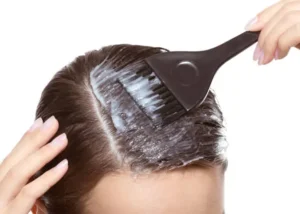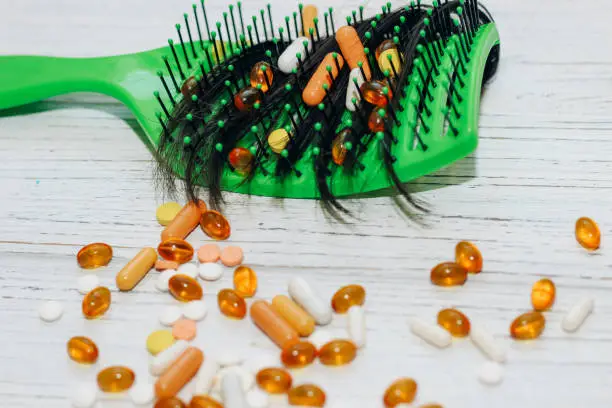Vitamins for hair loss boots
Hair loss can be a challenging experience, whether it’s due to genetics, stress, poor diet, or environmental factors. Many people turn to various treatments to address thinning hair, you know that the key to healthy, and strong may be found in the vitamins you take? If you’re looking for a natural way to boost your hair growth and prevent hair loss, might be just what you need.
explore the most effective vitamins for hair loss, and how you can incorporate them into your daily routine to promote stronger, fuller hair.
Why Are Vitamins Important for Hair Growth?
Hair growth is a complex process that depends on various factors, including the health of your scalp, the strength of your hair follicles, and the nutrients your body receives. Nutritional deficiencies can lead to thinning hair or even hair loss. This is where vitamins come into play. Vitamins for hair loss boots
Vitamins play a crucial role in maintaining the health of your hair by supporting the production of essential proteins, such as keratin, that contribute to hair structure.
A balanced diet rich in specific vitamins can stimulate hair follicles, strengthen hair strands, and even help prevent excessive shedding. If you’re dealing with hair loss or want to prevent it in the future, adding the right vitamins to your routine may be an effective strategy.
Best Vitamins for Hair Loss and Their Benefits
Here are some of the top vitamins to include in your diet to help fight hair loss and promote hair growth:
Vitamin A: Nourishing Your Hair Follicles
Vitamin A is crucial for maintaining healthy hair growth. It helps in the production of sebum, a natural oil that keeps your scalp hydrated and nourished. A well-moisturized scalp is essential for healthy hair follicles, which are necessary for hair growth.
Benefits: Vitamin A promotes cell growth, boosts hair strength, and keeps the scalp in top condition.
Food Sources: Sweet potatoes, carrots, spinach, and kale.
Vitamin B Complex: For Stronger, Healthier Hair
Vitamin B complex refers to a group of eight essential vitamins that work together to promote hair health. Among them, biotin (B7) is especially famous for its role in strengthening hair and preventing hair thinning. deficiency is often linked to hair loss and breakage.
Benefits: The B vitamins improve hair texture, strength, and growth. They help create red blood cells, which are responsible for carrying oxygen and nutrients to hair follicles.
Food Sources: Eggs, nuts, seeds, leafy greens, fish, and whole grains.
Vitamin C: The Antioxidant That Protects Hair
is an antioxidant that helps protect your hair from damage caused by free radicals. It also plays a key role in the production of collagen, a protein that strengthens hair and promotes elasticity. Additionally, vitamin C helps your body absorb iron more effectively, an essential mineral for hair growth.
Benefits: Vitamin C strengthens the hair shaft, prevents split ends, and improves hair texture.
Food Sources: Citrus fruits, strawberries, bell peppers, broccoli, and tomatoes.
Vitamin D: The Sunshine Vitamin for Hair Growth
Research has shown that a deficiency in may contribute to hair loss, particularly in conditions like alopecia. Vitamin D helps to create new hair follicles, allowing for the growth of fresh hair strands. Low levels are often linked to thinning hair and a less dense hairline.
Benefits: Vitamin D supports hair follicle regeneration, which can help stimulate hair growth and prevent shedding.
Food Sources: Fatty fish (like salmon), fortified milk, egg yolks, and exposure to sunlight.
Vitamin E: Boosting Circulation to the Scalp
Vitamin E is another powerful antioxidant that promotes a healthy scalp environment. It improves blood circulation to the scalp, ensuring that hair follicles receive the nutrients they need to grow strong and healthy hair. Vitamin E also helps to reduce oxidative stress, which can contribute to hair loss.
- Benefits: Vitamin E enhances hair growth by improving blood flow to the scalp and maintaining a healthy balance of oils on the scalp.
- Food Sources: Almonds, sunflower seeds, spinach, and avocados.
Folic Acid: Supporting Healthy Cell Division
Folic acid, a type of B vitamin, is known for its role in cell division and DNA synthesis. It encourages the production of new cells, which is essential for healthy hair growth. Folic acid also helps in maintaining the strength and vitality of existing hair.
- Benefits: Folic acid promotes the development of healthy hair follicles, stimulates hair growth, and may help prevent premature graying.
- Food Sources: Leafy greens, beans, peas, lentils, and citrus fruits.
Other Nutrients That Can Help Combat Hair Loss

While vitamins are crucial for hair growth, other nutrients can also help reduce hair loss and support overall hair health. Some of these include:
Iron
Iron is essential for the proper circulation of oxygen and nutrients to hair follicles. Iron deficiency is one of the most common causes of hair loss, especially in women. Ensuring adequate iron intake can help maintain hair health and prevent hair thinning.
- Food Sources: Red meat, spinach, lentils, and fortified cereals.
Zinc
Zinc plays a vital role in maintaining healthy hair by contributing to tissue growth and repair. It helps regulate the production of sebum on the scalp and strengthens hair follicles.
- Food Sources: Oysters, beef, pumpkin seeds, and lentils. Vitamins for hair loss boots
Omega-3 Fatty Acids
Omega-3 fatty acids are healthy fats that help nourish the hair, prevent dryness, and support hair follicle health. These fatty acids can also help reduce inflammation in the scalp, which is important for hair growth. Vitamins for hair loss boots
- Food Sources: Salmon, walnuts, chia seeds, and flaxseeds.
How to Incorporate Vitamins Into Your Diet
The best way to get the vitamins you need for hair health is through a balanced diet. Focus on eating a variety of nutrient-dense foods that include the vitamins and minerals mentioned above. Here are a few ideas to help you get started:
Breakfast: Start your day with a spinach and avocado smoothie, topped with chia seeds and a sprinkle of nuts.
Lunch: Enjoy a mixed greens salad with salmon or eggs, and add some sunflower seeds or pumpkin seeds for an extra boost of vitamin E and zinc.
Dinner: Try a quinoa bowl with roasted sweet potatoes, grilled chicken, and a side of steamed broccoli.
Snacks: Grab a handful of almonds, berries, or a boiled egg for a quick and nutritious snack.
If you feel like your diet isn’t providing enough of these nutrients, supplements can also be a good option. However, it’s always best to consult with a healthcare professional before starting any new supplements.
If you’re struggling with hair loss or just want to keep your hair in its best condition, vitamins can be a game-changer. Incorporating a variety of vitamins—such as vitamin A, B-complex, vitamin C, D, and E—along with key minerals like iron, zinc, and omega-3 fatty acids, can help nourish your hair from the inside out. Remember, healthy hair starts with a healthy body, so focus on a well-balanced diet, and you’ll be on your way to thicker, stronger hair in no time!
Are there any foods that can cause hair loss?
Yes, there are certain foods that, when consumed in excess or as part of an imbalanced diet, may contribute to hair loss or thinning. While no food directly causes hair loss, a poor diet lacking essential nutrients can lead to deficiencies that negatively affect your hair health. Below are some foods and dietary factors that might contribute to hair loss:
Sugary Foods and Refined Carbohydrates

Eating foods that are high in sugar and refined carbohydrates, such as candy, sugary snacks, pastries, and white bread, can cause spikes in blood sugar levels. These spikes lead to increased insulin production, which can affect the balance of hormones in the body. Hormonal imbalances, such as elevated levels of insulin or cortisol (the stress hormone), can contribute to hair thinning or hair loss.
- Why it affects hair loss: High sugar intake can cause inflammation in the body, affecting hair follicles and impairing healthy hair growth.
Greasy or Fried Foods
Delicious, greasy, and deep-fried foods are often high in unhealthy fats, such as trans fats and saturated fats. These types of fats can promote inflammation in the body, which can negatively impact hair growth. Additionally, an excess of greasy foods can lead to oily scalp conditions, clogged pores, and unhealthy hair follicles.
- Why it affects hair loss: An oily scalp, caused by excess grease and fat in the diet, can create an environment where hair follicles become clogged, reducing hair growth. Vitamins for hair loss boots
Highly Processed Foods
Highly processed foods, such as fast food, ready-to-eat meals, and processed meats (sausages, hot dogs, etc.), are typically low in essential nutrients like vitamins, minerals, and antioxidants. These foods can contribute to nutrient deficiencies that hinder the body’s ability to support healthy hair.
- Why it affects hair loss: A lack of vital nutrients like vitamins A, C, D, zinc, and iron from processed foods can lead to thinning hair or even hair loss over time. Vitamins for hair loss boots
Alcohol
Excessive alcohol consumption can dehydrate your body and negatively affect the absorption of essential nutrients. Chronic alcohol use can lead to deficiencies in key (such as B vitamins, vitamin C, and zinc), which are important for maintaining healthy hair.
- Why it affects hair loss: Alcohol can lower the levels of zinc and other nutrients necessary for healthy hair growth, and dehydration can lead to brittle hair that is more prone to breakage.
Soy Products (in Excess)
Soy contains compounds called phytoestrogens, which are plant-based substances that can mimic estrogen in the body. While soy is generally healthy in moderation, excessive consumption of soy-based products can lead to hormonal imbalances, particularly in people who are sensitive to estrogen-like compounds.
- Why it affects hair loss: Hormonal imbalances, particularly excess estrogen, may cause hair shedding or thinning in some individuals.
Fast Food and Junk Food High in Sodium
Many fast foods and junk food items are high in sodium, which can cause dehydration and disrupt your body’s ability to absorb nutrients properly. Dehydration can lead to dry, brittle hair that is more likely to break or fall out.
- Why it affects hair loss: High sodium intake can cause dehydration, which in turn leads to unhealthy hair and a dry scalp, contributing to hair loss over time.
Artificial Sweeteners
Some studies suggest that artificial sweeteners, such as aspartame, may disrupt metabolic processes and cause hormonal imbalances that affect hair growth. Although research on this topic is still inconclusive,
it’s best to limit artificial sweeteners if you are concerned about hair health.
- Why it affects hair loss: Potential disruptions to metabolism and hormones from artificial sweeteners may contribute to hair thinning in some individuals.
Dairy Products (for Some People)

While dairy is a good source of calcium and protein, some individuals may experience hair thinning due to dairy consumption, especially if they are lactose intolerant or have a sensitivity to dairy proteins. In these cases, inflammation or hormonal disruptions caused by dairy can contribute to hair loss.
- Why it affects hair loss: Dairy may trigger inflammatory responses or hormonal imbalances that lead to hair thinning or shedding.
Excessive Vitamin A
While vitamin A is essential for hair health, too much of it can lead to toxicity, which may cause hair loss. High doses of vitamin A, typically found in supplements or certain foods like liver, can trigger hair shedding or thinning.
- Why it affects hair loss: Excessive amounts of vitamin A can cause a toxic buildup in the body, disrupting the normal hair growth cycle and leading to hair loss.
Conclusion:
To promote healthy hair growth, it’s important to maintain a balanced diet that supports overall health. Avoiding excessive amounts of sugary, greasy, and processed foods, and ensuring you get enough essential nutrients like vitamins, minerals,
and healthy fats, can help keep your hair strong and healthy. If you suspect that a certain food or diet is causing hair loss,
speaking with a healthcare provider or nutritionist for personalized advice and guidance might be a good idea.
Frequently Asked Questions (FAQ)
Can vitamins reverse hair loss?
Vitamins can help promote healthy hair growth and prevent further hair loss if the hair loss is caused by nutritional deficiencies. However, they may not be a cure for all types of hair loss,
especially genetic or hormonal causes. It’s important to address any underlying health conditions with the help of a healthcare professional.
How long does it take for vitamins to work on hair growth?
Results can vary, but you may start seeing improvements in hair strength and texture within 2 to 3 months of consistent vitamin supplementation or dietary changes. Hair growth is a slow process, so patience is key.
Are there any side effects of taking too many vitamins for hair growth?
While vitamins are essential for healthy hair, taking too many can cause toxicity and lead to adverse side effects. For example, too much vitamin A can cause hair loss, while excess iron can lead to gastrointestinal issues. Always follow recommended dosages and consult a healthcare provider before starting supplements.
Can biotin alone help with hair loss?
Biotin can improve the strength and quality of your hair, especially if you have a deficiency, but it’s not a miracle cure. For optimal results, it’s important to combine biotin with other vitamins like B vitamins, vitamin D, and iron for a comprehensive approach to hair health.
Are there any foods that can cause hair loss?
While no food directly causes hair loss, a poor diet lacking essential nutrients can contribute to thinning hair. Foods high in sugar and unhealthy fats can promote inflammation and may lead to hair loss over time. Stick to a balanced, nutrient-rich diet for the best results.

